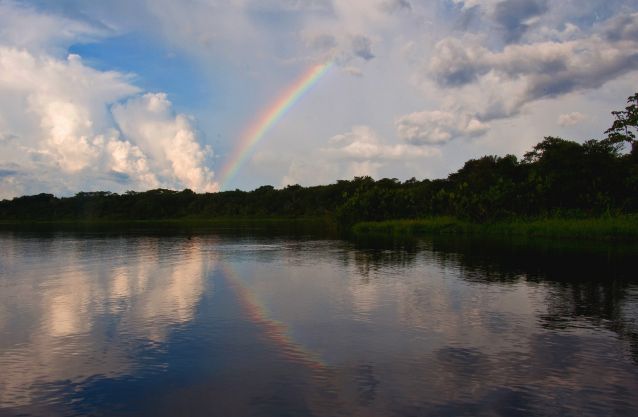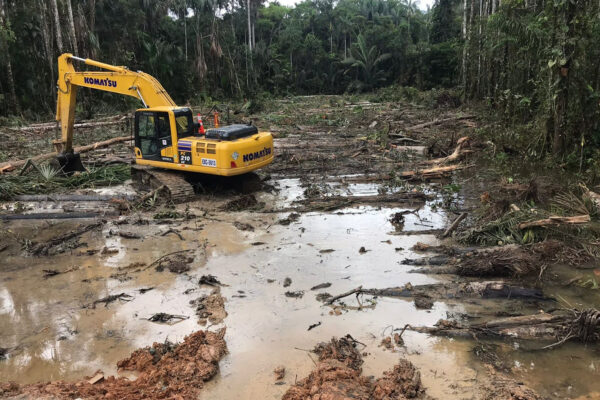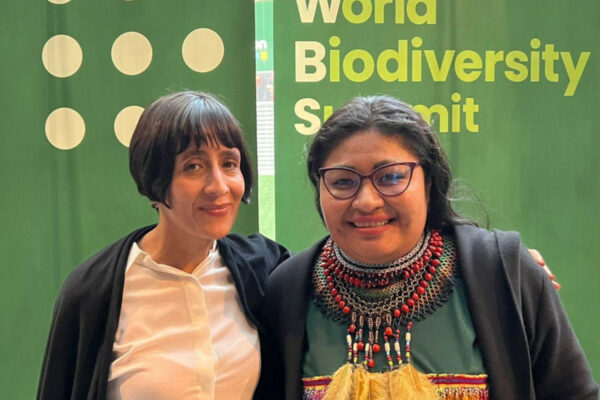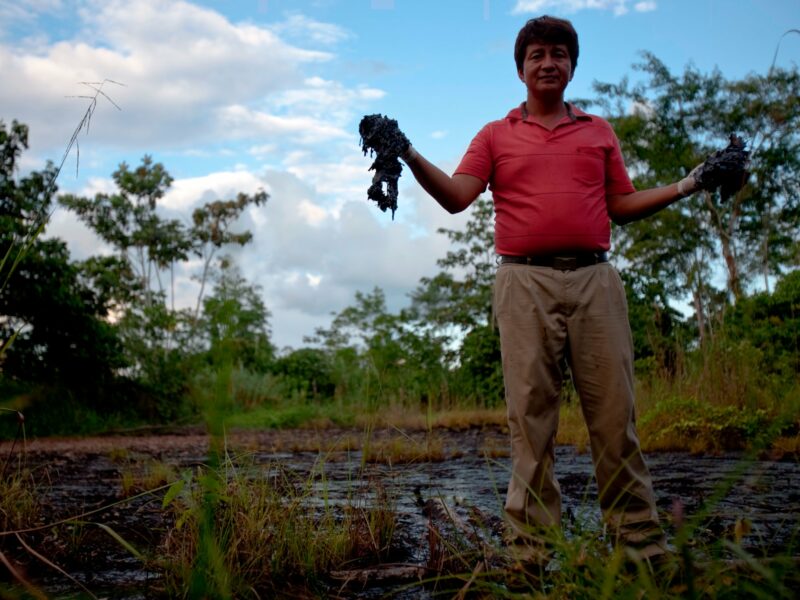
In 2007, Ecuadorean President Rafael Correa presented the Yasuní ITT Initiative to the United Nations General Assembly, declaring the country’s willingness to forego the exploitation of an estimated 846 million barrels of oil in order to preserve a large swath of the Ecuadorean Amazon. It is a bold and unprecedented plan but, unfortunately, its future is looking bleak.
Although the international community has been generally supportive of the plan, Germany, which had tentatively pledged over 50 million dollars in contribution to the initiative for the next ten years, withdrew its support this past week – putting the entire plan to protect the incredibly biodiverse rainforest in Ecuador’s Yasuní National Park in jeopardy.
Yasuní National Park is a 17,000-kilometer section of the Amazon Basin that was designated a UNESCO Biosphere Reserve in 1989 due to its unique biodiversity. However, this patch of pristine rainforest also has the misfortune of sitting on top of the country’s second-largest supply of oil. The Yasuní ITT proposal would protect the area from oil exploitation indefinitely by asking the international community for a financial contribution of $3.6 billion, or half the market value of the oil beneath the forest floor, over the next ten years. The funds would be administered by the United Nations Development Programme under an international trust fund and used by the Ecuadorean government for the development of sustainable energy, preservation of ecosystems and protected areas, reforestation, social development, and job creation.
Saving the Yasuní is in the interest of everyone inhabiting this planet, especially those most affected by climate change. Keeping this oil reserve underground will prevent over 400 million metric tons of CO2 emissions from being sent into our atmosphere – and that doesn’t even take into account emissions from the deforestation, colonization, and illegal logging that would follow the creation of roads by oil companies.
Germany was considered one of the strongest potential contributors, and its retreat has seriously endangered the entire Yasuní proposal. Chile and Peru have also consistently supported the initiative and pledged their financial support, but the lack of support and engagement from other countries has decreased the likelihood of the proposal’s success. In Ecuador, a few ministries and workers in the public sector are working towards gathering funds for the Yasuní project. This May, the National Secretariat for Planning and Development of Ecuador contributed $11,380 to the trust fund, a sum which falls far short of the $100 million required by the end of this year for the initiative to move forward.
After becoming the first nation to grant rights to nature under its constitution, Ecuador has been applauded by the scientific community for its pioneering efforts to enshrine the inherent value of the natural world in official policy. Yasuní National Park holds unparalleled scientific value in its biodiversity, and its forest people, the Huaorani, possess centuries of ancestral medicinal and environmental knowledge.
With the funds, Ecuador plans to invest heavily in the development of an Institute for Biodiversity, which will allow the country to effectively execute its National Plan for Good Living that was started in 2007 and has been slated for implementation between 2009 and 2013. The plan seeks to substitute its dependency on oil by generating bio-knowledge through the Institute of Biodiversity, which will operate in all regions from the jungle to the Galapagos Islands.
“Ecuador is at a decision point that will affect its future, its people, and its environment,” said E.O. Wilson, two-time Pulitzer Prize winner, about the plan. “I think it would be very wise and a lesson and light for the world, if it could base its economy on something else than oil.”
President Correa has expressed concern at finding alternative economic resources to oil if the initiative were to fail by the end of the year. He has begun serious discussions on “plan B” which will presumably consist of sustainable extraction techniques that many doubt the government will be capable of properly enforcing. Ivonne Baki, the head of the negotiating team for the Yasuní ITT proposal, has repeatedly asked the President to refrain from discussing plan B and to focus on achieving plan A. She says this is the people’s initiative too and that Ecuadorian citizens should be the first to contribute whatever funding they can to prevent drilling in the Yasuní.
At this point, it seems wise to ask whether or not we can place all our bets on the international community stepping up to protect the Yasuní by the end of the year. It would also make sense for the Ecuadorean government to at least seriously consider attempting to gather funds from private investors or philanthropic contributions from citizens worldwide. We must start thinking of new and innovative ways to save what’s left of our world’s rainforests and move beyond the use of oil as a fuel.
Estefanía Narváez is an Ecuadorian guest writer, organizer and activist.
A variation of this article also appeared on RAN’s Understory.














